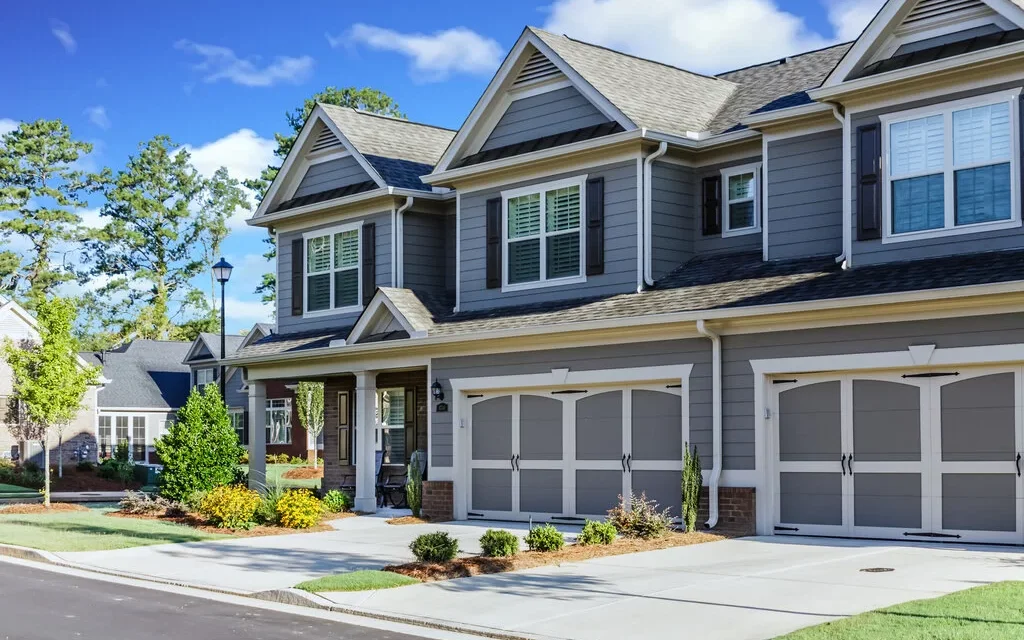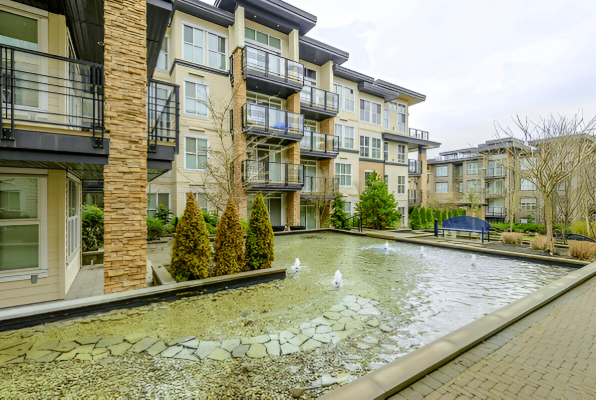The Canadian housing market offers a diverse range of properties to suit various lifestyles and budgets. Among these options, freehold townhomes have emerged as a popular choice, particularly for first-time homebuyers. Combining elements of both detached homes and condo living, freehold townhomes present a unique set of advantages and disadvantages. Let’s delve deeper into this property type to help you decide if it aligns with your dream home aspirations.
Freehold Townhome: Unpacking the Definition
At its core, a freehold townhouse is a multi-level dwelling that you own outright. Unlike condo townhomes where ownership is restricted to the interior unit, a freehold townhouse extends your ownership to encompass both the interior and exterior of the property, including the land it sits on. This aspect closely resembles owning a detached house, with the key difference being attached walls shared with neighboring units.
The responsibility for maintenance and repairs in a freehold townhouse falls entirely on the homeowner, similar to a detached house. However, you also enjoy the benefit of potentially faster property value appreciation compared to other residential properties.
Weighing the Pros and Cons: Freehold Townhome Ownership
Advantages of Freehold Townhomes
- Freedom from Monthly Maintenance Fees: Unlike condo living, freehold townhomes eliminate the burden of monthly fees associated with complex management and upkeep. This translates to potential cost savings that can be directed towards future repairs or renovations.
- Affordability Compared to Detached Homes: Freehold townhomes generally boast a lower price tag than detached houses, particularly in urban areas. This affordability makes them an attractive option for first-time homebuyers or those seeking a more budget-friendly alternative.
- Investment Potential with Value Appreciation: Freehold townhomes have historically shown a strong trend of appreciating in value at a faster rate than some other property types. This appreciation can be attributed to the lack of condo fees and their appeal to a broader range of buyers, including entry-level purchasers.
- Unrestricted Customization: As the sole owner, you have complete control over personalizing your freehold townhouse. Renovate the kitchen, paint the exterior, or landscape the backyard – the freedom to tailor the space to your preferences is unmatched.
- Family-Friendly Environment: Many freehold townhomes are situated in neighborhoods catering to families. This often translates to quieter environments with amenities like parks and schools nearby, making them ideal for raising children.
- Private Outdoor Space: Unlike condos that typically limit outdoor space to balconies, most freehold townhomes offer backyards. This provides a dedicated green space for relaxation, gardening, or enjoying some fresh air.
Disadvantages of Freehold Townhomes
- Double-Edged Sword: No Maintenance Fees: While the absence of condo fees can be a financial advantage, it also translates to complete responsibility for maintenance and repairs. This can be a significant concern, especially if unforeseen issues arise or if you lack the time or skills for DIY repairs.
- Self-Reliance for Upkeep: Owning a freehold townhouse necessitates budgeting for upkeep costs. From mowing the lawn to fixing the roof, all maintenance falls on the homeowner’s shoulders. Hiring professionals for these tasks can add to the overall expenses.
- Privacy Considerations: Compared to detached homes, freehold townhomes offer less privacy due to shared walls with neighboring units. You might occasionally hear noises from adjoining units or experience limitations on outdoor noise levels.
- Potential for Disruptive Tenants: Freehold townhomes are attractive to investors who rent them out. In such scenarios, there’s a possibility of dealing with disruptive tenants who may create noise issues, neglect property maintenance, or cause damage.
- Aging Concerns: While brand new freehold townhomes might seem ideal, consider the long-term outlook. Around the 10-15 year mark, the overall condition of the neighborhood and the quality of maintenance by surrounding homeowners can significantly impact the property’s value. Carefully evaluate the surrounding community before making a purchase decision.
- Rising Freehold Townhouse Prices: The demand for freehold townhomes has steadily increased over the years, driving their prices upwards. In certain areas, the price gap between freehold townhomes and smaller detached houses may have narrowed, making the decision a bit more complex.
Freehold Townhome vs. Condo Townhome: Understanding the Key Differences
The primary distinction between freehold and condo townhomes lies in ownership. When you purchase a condo townhouse, you own solely the interior unit, while the exterior, common areas, and amenities are collectively owned by all residents within the complex. Upkeep of these shared spaces is financed through monthly maintenance fees paid by each condo owner.
Condo townhomes are typically managed by a board of directors and a condo corporation, ensuring adherence to established rules and regulations. This often translates to restrictions on renovations and modifications you can make to your unit.
Condo townhomes are generally priced lower than freehold townhomes. This can be an attractive option for budget-conscious buyers, particularly young professionals or singles seeking a more affordable entry point into the housing market.
Amenities and Community Living:
Condo townhomes often come with access to shared amenities like swimming pools, fitness centers, and party rooms, amenities that might be cost-prohibitive to own individually. Additionally, condo living fosters a sense of community due to shared spaces and interaction with neighbors.
Making the Right Choice: Freehold Townhome vs. Your Needs
Ultimately, the decision between a freehold townhouse and other options hinges on your specific needs and preferences. Here are some key considerations to guide your choice:
Future Plans: If you envision upgrading to a detached house in the foreseeable future, a freehold townhouse can be a stepping stone, offering more space and potential for value appreciation.
Family Needs: Freehold townhomes in family-oriented neighborhoods provide a comfortable and secure environment for raising children.
Investment Potential: If you’re looking for an investment property, freehold townhomes offer the advantage of avoiding condo fees while potentially experiencing good value appreciation.
Budget and Maintenance: Consider your budget for both the initial purchase and ongoing maintenance costs. If DIY repairs are not your forte, factor in the expense of hiring professionals.
Lifestyle Preferences: Evaluate your desire for privacy and outdoor space. If these aspects are crucial, a freehold townhouse with a backyard might be preferable to a condo with limited outdoor areas.
Conclusion
Freehold townhomes offer a compelling blend of affordability, space, and ownership advantages. While they come with maintenance responsibilities, they also provide the freedom to personalize your space and potentially enjoy faster property value appreciation. Carefully weigh the pros and cons, and consider your lifestyle preferences to determine if a freehold townhouse aligns with your dream home aspirations. By thoroughly evaluating your options, you can make an informed decision that sets you on the path to homeownership success.











